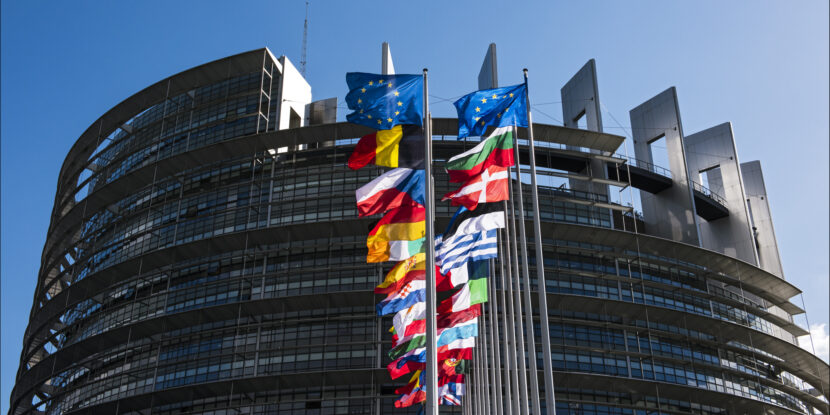
PULSE POINTS:
❓What Happened: On Wednesday, before President Donald J. Trump announced he would be reducing tariffs on countries that have not “retaliated in any way, shape, or form against the United States,” the European Union (EU) approved an estimated $21 billion in retaliatory tariffs against a number of American exports.
👥 Who’s Involved: The European Union, the European Commission, and U.S. President Donald J. Trump.
Your free, daily feed from The National Pulse.
📍 Where & When: Brussels, Belgium on Wednesday, April 9.
💬 Key Quote: “The EU considers U.S. tariffs unjustified and damaging, causing economic harm to both sides, as well as the global economy. The EU has stated its clear preference to find negotiated outcomes with the U.S., which would be balanced and mutually beneficial,” the European Commission said in a statement.
⚠️ Impact: The EU retaliatory trade measures were to be imposed in three phases from April 15, impacting a number of American goods, including soybeans, motorcycles, orange juice, meat, tobacco, steel, and aluminum. Their fate is unclear now that President Trump has announced he will drop reciprocal tariffs—but not tariffs specific to certain tariffs, such as steel—to 10 percent for everyone but China for 90 days while trade negotiations are conducted.
IN FULL:
The European Union (EU) has cleared the way to impose an estimated $21 billion in retaliatory tariffs on American goods in response to steel and aluminum tariffs enacted by U.S. President Donald J. Trump last month. The European Commission—the EU’s unelected, quasi-executive body—announced the decision on Wednesday, noting that 26 of its 27 member states approved the trade measures. Viktor Orbán’s Hungary was the only EU country to oppose the tariff package.
“The EU considers U.S. tariffs unjustified and damaging, causing economic harm to both sides, as well as the global economy. The EU has stated its clear preference to find negotiated outcomes with the U.S., which would be balanced and mutually beneficial,” The European Commission said in a statement.
The EU tariffs on U.S. goods are to be enacted in three phases, the first of which will take effect next week. Additional tariff measures will be imposed in May, and the final phase will be imposed in December. As of the time of publication, this timeline does not appear to have been changed as a result of President Trump’s pause.
The EU’s retaliatory measure consisted mainly of a 25 percent trade duty on American goods such as soybeans, motorcycles, orange juice, meat, tobacco, steel, and aluminum. However, the list of products hit with the trade levy could grow, if the EU moves forward with retaliatory measures next week in response to President Trump’s 25 percent tariff on European automobiles and the now paused 20 percent reciprocal tariff on all EU goods. It is unclear, now that Trump has paused the reciprocal tariffs, whether the Europeans will move forward with additional retaliatory measures.
Following the EU’s approval of the retaliatory measures, President Trump announced he would reduce U.S. reciprocal tariffs on countries that have not imposed any new import duties on America to a universal 10 percent tariff for 90 days, while they negotiate bilateral trade agreements with the White House. China was the one named exception by Trump, and will instead face a 125 percent tariff for imposing retaliatory levies on the U.S.
Notably, sector-specific U.S. tariffs on products, including steel, aluminum, and automobiles, appear unaffected by this pause.
Today, EU countries backed our proposal to impose trade countermeasures on the United States, in response to unjustified steel and aluminium tariffs.
Duties will apply from 15 April.
They can be lifted at any time, should a fair and balanced negotiated solution be found.
— European Commission (@EU_Commission) April 9, 2025
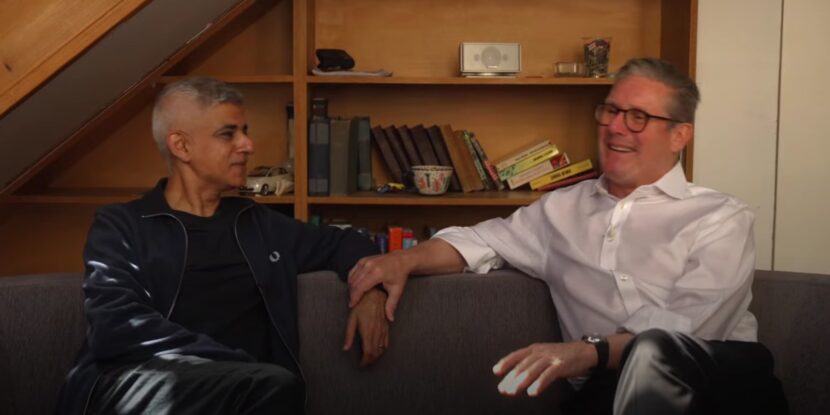
PULSE POINTS:
❓What Happened: London has dropped out of the world’s top five richest cities due to an exodus of millionaires.
👥 Who’s Involved: New World Wealth and Henley & Partners, Prime Minister Keir Starmer, Chancellor Rachel Reeves, Mayor Sadiq Khan.
Your free, daily feed from The National Pulse.
📍 Where & When: London, England, over the last decade.
💬 Key Quote: Andrew Amoils of New World Wealth stated, “Capital gains tax and estate duty rates [IHT] in the UK are among the highest in the world, which deters wealthy business owners and retirees from living there.”
⚠️ Impact: London lost 11,300 millionaires last year, including two billionaires. The multicultural city’s financial standing has diminished, and it remains the fourth most expensive globally for living costs.
IN FULL:
A recent report reveals that London, England, is no longer among the top five wealthiest cities globally following a significant outflow of millionaires. The study by New World Wealth for advisory firm Henley & Partners indicates that London, led by Mayor Sir Sadiq Khan of the Labour Party, lost 11,300 millionaires and two billionaires over the past year alone.
The report, which defines wealth as liquid investable assets such as stocks and bonds, shows London’s current count at roughly 215,700 millionaires. Hikes in local and national taxes and the declining value of the British pound have been cited as key reasons for the city’s reduced allure to the affluent.
A notable change in British tax policy under Prime Minister Sir Keir Starmer’s far-left Labour government, particularly the abolition of the non-domiciled tax status, is exacerbating the exodus. Wealthy individuals who have resided in the United Kingdom for over four years are now subject to British tax on worldwide income and potentially a 40 percent inheritance tax. As such, many are relocating to more tax-friendly locales, including Portugal, Greece, and Italy, where they can minimize or avoid equivalent taxes.
Andrew Amoils from New World Wealth stated, “Capital gains tax and estate duty rates [IHT] in the UK are among the highest in the world, which deters wealthy business owners and retirees from living there.” He noted that the retreat of multi-millionaires, individuals whose financial ventures shaped many companies in London’s FTSE 100, presents a wider economic risk.
London, a hyper-diverse city where only around a third of the population are White British and around 40 percent of the population are foreign-born, is also suffering reputational damage as a result of endemic crime and anti-social behavior.
show less
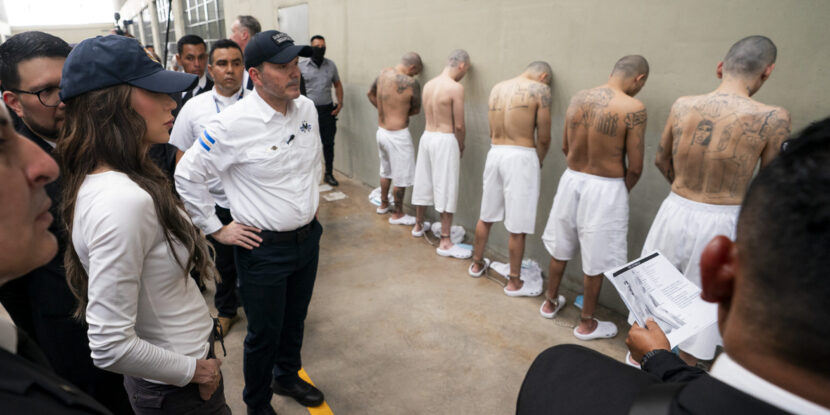
PULSE POINTS:
❓What Happened: The Trump administration says it will continue to collaborate with El Salvador President Nayib Bukele to deport and house dangerous illegal immigrants in his country’s CECOT super prison. Homeland Security Secretary Kristi Noem stated on Tuesday that thousands more illegal immigrants may soon be sent to the facility.
👥 Who’s Involved: Department of Homeland Security Secretary Kristi Noem, El Salvador President Nayib Bukele, Supreme Court justices, and the Trump administration.
Your free, daily feed from The National Pulse.
📍 Where & When: Phoenix, Arizona, on a Tuesday morning, following a federal immigration raid.
💬 Key Quote: “You’ll see us continuing to partner with El Salvador. CECOT has the capacity for 40,000 individuals, and [El Salvador President Nayib Bukele] has said they’ll take as many as we want to send,” said Kristi Noem.
⚠️ Impact: The Supreme Court earlier this week ended a lower court’s pause on deportations to El Salvador, potentially leading to increased use of the Central American country’s prisons for criminal migrants.
IN FULL:
In the wake of a federal immigration enforcement operation on Tuesday, the Department of Homeland Security (DHS) is eyeing the relocation of substantial numbers of illegal immigrant criminal gang members to El Salvador’s CECOT prison. Homeland Security Secretary Kristi Noem suggested, following the raid, that the CECOT facility can hold thousands more dangerous illegal immigrants and that the Trump administration is looking to ramp up expulsions under the Alien Enemies Act.
“You’ll see us continuing to partner with El Salvador. CECOT has the capacity for 40,000 individuals, and [El Salvador President Nayib Bukele] has said they’ll take as many as we want to send,” Noem said, adding: “There’s 14,000 there now.”
In addition, the DHS Secretary revealed that Bukele intends to build a second prison facility next to CECOT, which could be used to hold even more members of violent, illegal immigrant gangs like Tren de Aragua and MS-13.
President Donald J. Trump’s administration has used the 1798 Alien Enemies Act for expedited expulsions of illegal immigrants found to be members of Tren de Aragua, MS-13, and other violent criminal groups. Last month, a far-left U.S. District Court Judge temporarily halted the removals, prompting the Trump White House to file an emergency appeal with the Supreme Court. On Monday, the high court lifted the lower court’s restraining order, allowing Alien Enemies Act expulsions to resume.
Addressing the Supreme Court’s ruling and continued Democrat lawfare efforts against the Trump administration’s push to deport violent and dangerous illegal immigrants, Noem said: “We’re going to continue using that act in order to return people from these terrorist organizations to face consequences and be removed from our country.”
Meanwhile, the DHS Secretary also warned illegal immigrants that the Trump administration, later this week, will begin enforcing provisions of the Alien Registration Act of 1940. Under this law, foreign nationals who reside in the United States for more than 30 days must register with the federal government. Those failing to register will face severe financial penalties.
show less

PULSE POINTS:
❓What Happened: Texas Attorney General Ken Paxton has launched a primary challenge against incumbent U.S. Senator John Cornyn.
👥 Who’s Involved: Ken Paxton, John Cornyn, Texas Republicans, and Donald J. Trump supporters.
Your free, daily feed from The National Pulse.
📍 Where & When: Announcement made in Texas this week.
💬 Key Quote: Paxton declared, “It’s definitely time for a change in Texas,” in his announcement.
⚠️ Impact: The primary could strengthen the America First movement in the Senate, displacing the Bush-type Cornyn in favor of one of President Trump’s strongest supporters.
IN FULL:
Texas Attorney General Ken Paxton has confirmed his intent to challenge U.S. Senator John Cornyn (R-TX) in an upcoming Republican primary. The announcement signals a potentially contentious race for one of Texas’s Senate seats—which Cornyn has held since 2002.
Paxton, who has held his current office since 2015, argues that the state requires a change in leadership. “I’m announcing that I’m running for U.S. Senate against John Cornyn, who apparently is running again for his fifth term, which would put him there three decades. It’s definitely time for a change in Texas,” he told Laura Ingraham.
Cornyn’s team is attempting to portray him as an ally to President Donald J. Trump while personally attacking Paxton and branding him a “fraud.” However, Paxton’s record as a Trump supporter is solid, while Cornyn previously argued against the America First leader standing for reelection in 2024 and lobbied Congress not to oppose the lawfare campaign against him.
“John Cornyn condemned the House GOP for investigating Soros-backed DA Alvin Bragg’s political persecution of President Trump,” Paxton recalled in March, contending that the incumbent “was always desperate for the bogus witch hunt to succeed.”
An early poll conducted by Texas Public Opinion Research shows Paxton leading Cornyn by a ten-point margin. Another poll conducted by Fabrizio, Lee & Associates found Paxton leading by an even larger margin of 53 to 28 percent, rising to 70 percent to just 14 percent on an “informed ballot.”
show less
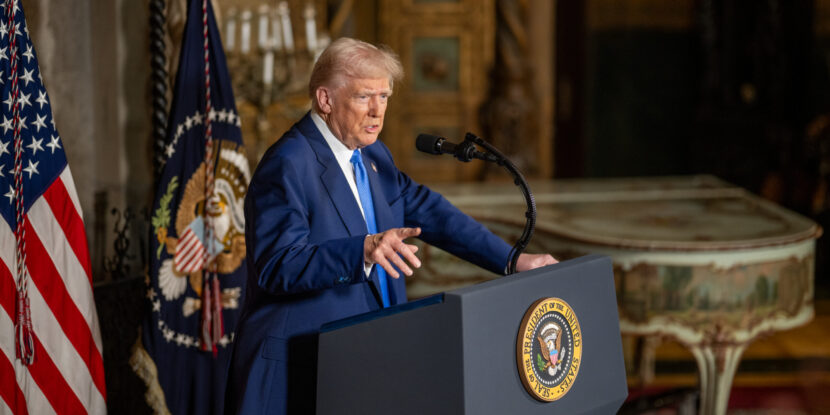
President Donald J. Trump announced on Wednesday that the United States will now impose a total tariff of 125 percent on Chinese imports, after raising the total trade duty to 104 percent less than 12 hours earlier. In addition, Trump signaled that he would reduce the tariffs imposed on countries that have not moved to retaliate against the U.S. for a 90-day period, as each engages in bilateral talks with the White House.
“Based on the lack of respect that China has shown to the World’s Markets, I am hereby raising the Tariff charged to China by the United States of America to 125%, effective immediately. At some point, hopefully in the near future, China will realize that the days of ripping off the U.S.A., and other Countries, is no longer sustainable or acceptable,” Trump wrote in a post on Truth Social, in response to China raising retaliatory tariffs on the U.S.
Your free, daily feed from The National Pulse.
Notably, the increasing tariff rate on Chinese goods appears to be forcing the People’s Bank of China (PBOC) into a series of emergency devaluations of the Chinese yuan, leading to increasing concerns for the Chinese economy.
The President continued: “Conversely, and based on the fact that more than 75 Countries have called Representatives of the United States, including the Departments of Commerce, Treasury, and the [United States Trade Representative], to negotiate a solution to the subjects being discussed relative to Trade, Trade Barriers, Tariffs, Currency Manipulation, and Non Monetary Tariffs, and that these Countries have not, at my strong suggestion, retaliated in any way, shape, or form against the United States, I have authorized a 90 day PAUSE, and a substantially lowered Reciprocal Tariff during this period, of 10%, also effective immediately.”
According to the White House, over 75 countries have now asked to engage in bilateral talks, with only China, the European Union (EU), and Canada having threatened any significant relation. Treasury Secretary Scott Bessent, speaking Wednesday afternoon, emphasized that the pause is necessary because of the number of nations entering talks, and the fact that President Trump wants to be a part of each negotiation.
READ:
show less
President Donald J. Trump announced on Wednesday that the United States will now impose a total tariff of 125 percent on Chinese imports, after raising the total trade duty to 104 percent less than 12 hours earlier. In addition, Trump signaled that he would reduce the tariffs imposed on countries that have not moved to retaliate against the U.S. for a 90-day period, as each engages in bilateral talks with the White House. show more
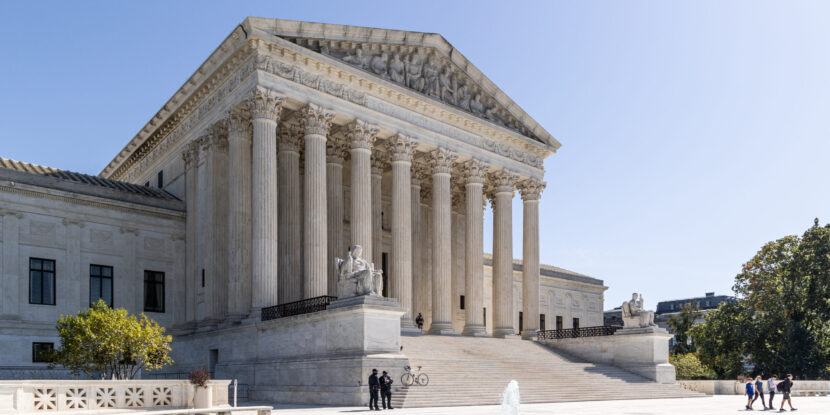
PULSE POINTS:
❓What Happened: The American Civil Liberties Union (ACLU) has filed a lawsuit against the Trump administration to stop deportations under the 1798 Alien Enemies Act (AEA).
👥 Who’s Involved: The ACLU, the Trump administration, two Venezuelan migrants, and the Supreme Court.
Your free, daily feed from The National Pulse.
📍 Where & When: The lawsuit was filed on Tuesday in New York after a related Supreme Court decision on Monday.
💬 Key Quote: “The AEA has only ever been a power invoked in time of war… It cannot be used here against nationals of a country—Venezuela—with whom the United States is not at war,” the ACLU claims.
⚠️ Impact: The lawsuit challenges the use of presidential powers to deport designated “alien enemies,” potentially affecting over 130 illegals already removed from the U.S.
IN FULL:
The American Civil Liberties Union (ACLU) initiated a new lawsuit against the Trump administration on Tuesday, seeking to halt the deportation of two Venezuelan migrants under the 1798 Alien Enemies Act. Filed with the U.S. District Court for the Southern District of New York, the litigation follows a U.S. Supreme Court ruling on Monday that lifted a restraining order issued by Judge James Boasberg that prevented President Donald J. Trump from using the act to remove members of Tren de Aragua from the country. In addition, the Supreme Court determined that future challenges to deportation under the act must be filed with the lower court in the jurisdiction in which the migrant was detained.
In the filing, which asks U.S. District Court Judge Alvin Hellerstein to block the deportation of two Venezuelan illegal immigrants, the ACLU argues that the Alien Enemies Act has historically only been deployed during wartime and not against foreign nationals from countries with which the United States is at peace. “The AEA has only ever been a power invoked in time of war, and plainly only applies to warlike actions: it cannot be used here against nationals of a country—Venezuela—with whom the United States is not at war, which is not invading the United States, and which has not launched a predatory incursion into the United States,” the filing contends.
Additionally, the ACLU accuses the Trump administration of violating the Supreme Court’s Monday ruling, which requires federal officials to provide those detained under the Alien Enemies Act with notice before they are deported. “Respondents seek to move Petitioners in secret, without due process, to a prison in El Salvador known for dire conditions, torture, and other forms of physical abuse—possibly for life,” the filing states, adding: “This has already borne out for over 130 individuals on March 15 who have lost all contact with their attorneys, family, and the world.”
The Trump White House has utilized the Alien Enemies Act to expedite the expulsion of illegal immigrants shown to be affiliated with violent criminal organizations and gangs like Venezuela’s Tren de Aragua and El Salvador’s MS-13. Those detained and deported under the law are sent to El Salvador’s Terrorism Confinement Center (CECOT).
Previously, Judge Hellerstein—presiding over the case—twice rejected President Trump’s attempts last year to move Manhattan District Attorney Alvin Bragg’s so-called hush money prosecution against him to federal court.
show less

PULSE POINTS:
❓What Happened: Defense Secretary Pete Hegseth pledges U.S.-Central America teamwork to counter Chinese Communist Party (CCP) influence, secure the Panama Canal, and tackle shared threats like cartels and illegal immigration.
👥 Who’s Involved: Pete Hegseth, Central American leaders at CENTSEC, President Donald J. Trump, Panama’s government, and the CCP.
Your free, daily feed from The National Pulse.
📍 Where & When: Central American Security Conference (CENTSEC), Panama, April 9, 2025.
💬 Key Quote: “We do not seek war with China, and war with China is certainly not inevitable. We do not seek it in any form. But together, we must prevent war by robustly and vigorously deterring China’s threats in this hemisphere.” — Pete Hegseth.
⚠️ Impact: The U.S. will ramp up its military and diplomatic push to reclaim Panama Canal influence, deploying the USNS Comfort and reviving the Cold War-era Jungle School, signaling a bold stand against China’s regional encroachments.
IN FULL:
Defense Secretary Pete Hegseth has told the Central American Security Conference (CENTSEC) in Panama that the U.S. will work together with Central America to beat back the growing influence of the Chinese Communist Party (CCP) in the region and address “shared threats.”
After first noting the Trump administration’s collaboration with Central American governments on combatting cartels and illegal immigration, Hegseth said, “[W]e have to recognize the threat that China poses to our countries, to our people, and to peace in this region.”
“China-based companies are capturing land [and] critical infrastructure in strategic sectors such as energy and telecommunications,” he continued, warning that “China’s military has too large of a presence in the Western Hemisphere.”
“They operate military facilities and ground stations to extend their reach into space. They exploit natural resources and land to fuel China’s global military ambitions. China’s factory fishing fleets are stealing food from our nations and from our people,” he observed, adding, “Make no mistake, Beijing is investing and operating in this region for military advantage and unfair economic gain.”
“We do not seek war with China, and war with China is certainly not inevitable. We do not seek it in any form. But together, we must prevent war by robustly and vigorously deterring China’s threats in this hemisphere,” he stressed.
In particular, he emphasized President Donald J. Trump’s determination that the Panama Canal, formerly controlled by the U.S., and its adjacent areas “cannot and will not be controlled by China.” He said the Trump administration is now “working closely with our partners in Panama to secure the canal and advance our mutual security interests” and that the American and Panamanian governments “together are taking it back from Chinese influence.”
Beyond Panama, Hegseth vowed the Trump administration would “work with every country here in this room to address our shared threats” and was “directing the United States Naval Ship Comfort,” a hospital ship, to deploy to Panama and the wider region later in 2025, alongside an expansion of military training, exchanges, and joint exercises.
The National Pulse previously reported that this will include reestablishing the famous Jungle School in Panama, which closed in 1999.
“We’re going to increase cooperation to deter threats, to seek opportunities to bolster our shared defense. That’s what CENTSEC, Panama 2025, is all about. Friends standing shoulder to shoulder with friends,” Hegseth said.
The National Pulse Editor-in-Chief Raheem Kassam has been on the ground with Hegseth in Panama, covering the landmark trip in person.
show less
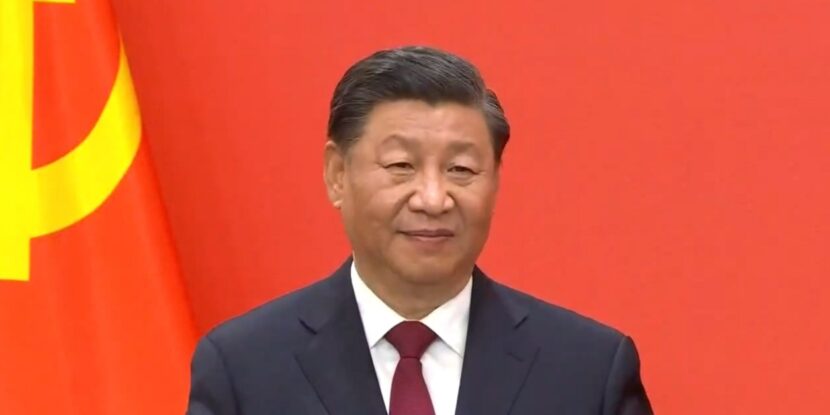
PULSE POINTS:
❓What Happened: The United States raised tariffs on Chinese goods to 104 percent at midnight. In retaliation, China announced a further 50 percent tariff on American goods, raising its total tariff on U.S. imports to 84 percent.
👥 Who’s Involved: President Donald J. Trump, U.S. Treasury Secretary Scott Bessent, Chinese President Xi Jinping, Chinese Foreign Ministry spokesman Lin Jian.
Your free, daily feed from The National Pulse.
📍 Where & When: The tariffs were enforced at midnight on Tuesday, April 8, with China’s retaliatory measures scheduled to start on Thursday, April 10.
💬 Key Quote: “They are the surplus country. Their exports to the U.S. are five times our exports to China. So, they can raise their tariff, but so what?” — U.S. Treasury Secretary Scott Bessent.
⚠️ Impact: The additional tariff imposed by China on American goods marks a continued escalation in the trade conflict between the two nations and will likely increase global market volatility. However, China’s position as a heavy net exporter means their tariff is likely to have little effect on the American economy overall.
IN FULL:
The People’s Republic of China will impose an additional 50 percent tariff on American goods beginning Thursday after U.S. President Donald J. Trump raised the tariff on all Chinese imports to 104 percent yesterday at midnight. American goods exported to China will now face an 84 percent tariff in total. The Chinese retaliatory tariff will likely have little effect as the communist state exports far more goods than it imports.
“I think it’s unfortunate that the Chinese actually don’t want to come and negotiate because they are the worst offenders in the international trading system. They have the most imbalanced economy in the history of the modern world. And I can tell you that this escalation is a loser for them,” U.S. Treasury Secretary Scott Bessent said on Wednesday after China announced the new trade duties. He explained: “They are the surplus country. Their exports to the U.S. are five times our exports to China. So, they can raise their tariff, but so what?”
The Treasury Secretary also warned the Chinese Communist Party (CCP) that what they “should not do is try to devalue their way out of this,” noting that the Chinese offshore yuan—the country’s internationally tradable currency—hit its weakest level since 2010 on Tuesday. Bessent emphasized that any attempt by China to devalue the yuan would force other nations to “keep raising their tariffs to offset the devaluation.”
China, however, contends the United States is using trade policy to attack its sovereignty and development interests. “We will not let anyone take away the Chinese people’s legitimate right to development. We will not tolerate any attempt to harm China’s sovereignty, security, and development interests, ” Lin Jian, a spokesman for the Chinese Foreign Ministry, said after the announcement of an additional 50 percent tariff on U.S. goods on Wednesday.
While China and a handful of other nations continue to resist President Trump’s moves to end unfair trade barriers against American products, at least 70 countries are set to begin negotiations with the White House on bilateral trade agreements.
show less

PULSE POINTS:
❓What Happened: The White House Office of Management and Budget has issued revised policies on using artificial intelligence (AI) within federal agencies.
👥 Who’s Involved: The Office of Management and Budget, the Assistant to the President on Science and Technology, the Office of Science and Technology Policy, and President Donald J. Trump.
Your free, daily feed from The National Pulse.
📍 Where & When: Washington D.C., announced April 7.
💬 Key Quote: “President Trump recognizes that AI is a technology that will define the future,” Lynne Parker, Principal Deputy Director of the White House OSTP, said.
⚠️ Impact: The policies are designed to maintain American leadership in AI, ensure efficient taxpayer spending, foster a competitive AI marketplace, and safeguard privacy and civil rights.
IN FULL:
The White House Office of Management and Budget has introduced updates to its guidance on artificial intelligence (AI). The move aims to enhance the adoption and procurement of AI technologies across federal agencies. This step aligns with a directive outlined in a recent executive order from President Donald J. Trump, which seeks to eliminate hindrances to U.S. dominance in AI technology.
Lynne Parker, the Principal Deputy Director for the Office of Science and Technology Policy, emphasized the administration’s dedication to nurturing an environment that promotes American innovation in AI: “President Trump recognizes that AI is a technology that will define the future. This administration is focused on encouraging and promoting American AI innovation and global leadership, which starts with utilizing these emerging technologies within the Federal Government,” Parker said.
According to officials, this initiative aims to ensure AI applications drive efficiency within government processes and elevate public confidence through enhanced government transparency.
Last month, President Trump penned a letter to Michael Kratsios, Director of the White House Office of Science and Technology Policy. The letter highlighted a renewed push to make America a global leader in cutting-edge technologies, including AI.
show less
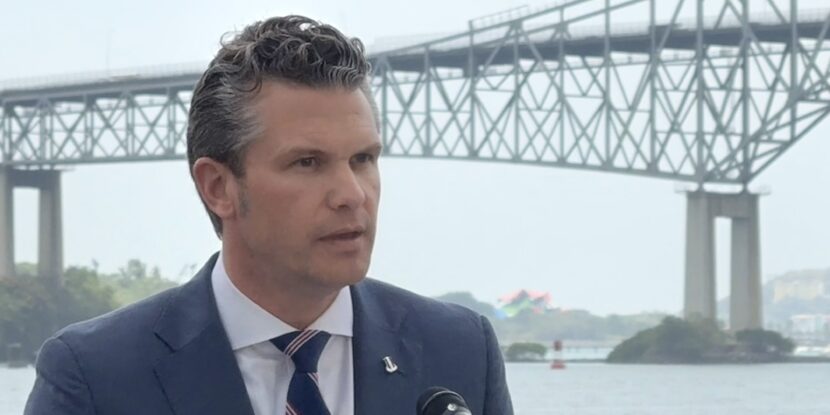
PULSE POINTS:
❓What Happened: U.S. Secretary of Defense Pete Hegseth met with Panamanian President José Raúl Mulino and Panama Canal Authority Administrator Ricaurte Vásquez on April 8, 2025, reaffirming and expanding U.S.-Panama security cooperation.
📍Where: Panama City, Panama.
Your free, daily feed from The National Pulse.
🕰️When: April 8, 2025.
👥Who Was Involved: President José Raúl Mulino, Secretary Pete Hegseth, ACP Administrator Ricaurte Vásquez, Minister Juan Manuel Abrego, and U.S. Admiral Alvin Holsey.
💬Key Quotes: Hegseth “strongly welcomed President Mulino’s commitment to make Panama the first country in our hemisphere to exit the Belt and Road Initiative.”
⚠️Fallout: Panama is doubling down on security cooperation with the U.S., stepping back from China, clamping down on illegal immigration, and reactivating key joint military exercises.
📌Why It Matters: Panama is a strategic chokepoint in global trade. As tensions rise with China, the U.S. is securing access to the Canal, expanding cyber-defense efforts, and resuming military readiness operations in the region.
IN FULL:
PANAMA CITY, Panama – The U.S. and Panama are rebooting their strategic partnership, ditching China’s influence and locking in a robust security upgrade centered on the Panama Canal, The National Pulse can report late Tuesday evening.
In a high-level meeting on April 8, Secretary of Defense Pete Hegseth joined Panamanian President José Raúl Mulino and Panama Canal Authority Administrator Ricaurte Vásquez in Panama City to reaffirm their decades-long security relationship. At the core of the new commitment: boosting joint military training, strengthening cyber and maritime defense, and streamlining military vessel passage through the Canal.
Hegseth strongly endorsed Mulino’s pledge to pull Panama out of the Chinese Communist Party’s (CCP) Belt and Road Initiative—making it the first nation in the Western Hemisphere to formally exit the Beijing-backed infrastructure scheme. U.S. officials have long viewed the CCP’s growing influence in Latin America as a direct threat to global trade routes and regional sovereignty.
Hegseth also praised Panama’s firm action on border enforcement, commending the Mulino government for reducing illegal immigration and sealing off the notorious Darién Gap—long used as a corridor by smugglers and illegal migrants.
With over $230 million in U.S. security assistance delivered over the last five years, the leaders agreed to deepen cooperation even further. Under the new agreement:
Warships and auxiliary vessels from both nations will be guaranteed expedited passage through the Canal under Treaty obligations;
A new mechanism will be developed to compensate Panama for tolls and charges under the “First and Free” neutrality framework;
A new Memorandum of Understanding will expand U.S.-Panama military collaboration at joint-use facilities;
Regular joint jungle warfare training will resume, and the large-scale PANAMAX 2026 defense exercise will return to Panamanian soil;
A new Joint Statement of Understanding between Minister Juan Manuel Abrego and U.S. Admiral Alvin Holsey will bolster security cooperation and professional education;
Strategic, cyber, and maritime security planning will be enhanced with U.S. Department of Defense support;
The U.S. Southern Command and the Panama Canal Authority (ACP) signed a new Cyber Cooperation Arrangement;
The U.S. Army Corps of Engineers will continue providing technical support to ensure the long-term sustainability of the Canal.
In tandem, both nations are revitalizing the High-Level Security Dialogue, with a sharper focus on Canal security, commercial shipping resilience, and military preparedness.
For Washington, the stakes are high: the Panama Canal remains a critical artery for global commerce and military mobility. For Panama, the renewed alliance signals a break with CCP encroachment—and a return to sovereignty-centered defense with American backing.
Earlier today, Secretary Hegseth announced the reopening of the long-abandoned Fort Sherman, doubling down on the cooperation between the two nations and investing in Panama’s security with U.S. interests in mind.
Picture by Raheem Kassam
show less
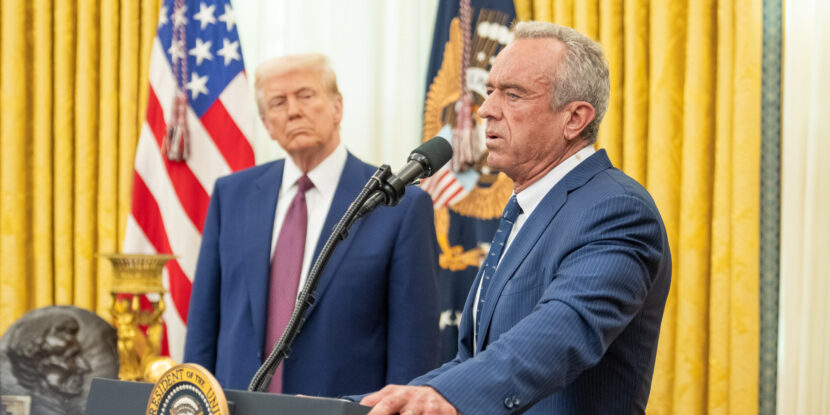
PULSE POINTS:
❓What Happened: The New York Times published a story involving Health and Human Services (HHS) Secretary Robert F. Kennedy Jr.’s review of fluoride recommendations. The White House argues it is a smear meant to portray the Trump administration as anti-science and anti-health.
👥 Who’s Involved: Secretary Robert F. Kennedy Jr., The New York Times, the Trump administration, and the Centers for Disease Control and Prevention (CDC).
Your free, daily feed from The National Pulse.
📍 Where & When: The White House, state governments across the U.S., including Utah.
💬 Key Quote: The White House contends The New York Times story “is another thinly veiled attempt to falsely portray the Trump Administration as anti-science and anti-health—a characterization that couldn’t be farther from the truth.”
⚠️ Impact: Fluoride in drinking water is linked to health concerns, such as potential impacts on children’s intelligence and various associations with chronic diseases.
IN FULL:
The Trump White House is accusing The New York Times of ignoring their own previous reporting to smear Department of Health and Human Services (HHS) Secretary Robert F. Kennedy Jr.‘s push for state governments to consider restrictions on the use of fluoride in public drinking water. According to the White House, The New York Times story, published on Monday, “is another thinly veiled attempt to falsely portray the Trump Administration as anti-science and anti-health—a characterization that couldn’t be farther from the truth.”
Previous reporting by the newspaper notes that “fluoride may be linked to lower IQ scores in children,” the Trump White notes. The potential negative impact on brain development in children has been a core concern raised by Kennedy in his push for state governments to reevaluate their use of fluoride.
In response to the story, the White House contends that the HHS review is grounded in several recent studies and other evidence suggesting fluoride is more harmful than previously thought. They note that the Centers for Disease Control and Prevention (CDC) has determined that the dental benefits provided by fluoride come from topical contact with the outside of a person’s teeth and not from its ingestion. Additionally, the Trump administration is pointing to a 2024 study from HHS’s National Toxicology Program, which found with “moderate confidence” that drinking water fluoride levels, even at the World Health Organization (WHO) recommended limit of 1.5 mg/l, are “consistently associated with lower IQ in children.”
The National Pulse previously reported that Utah has become the first state in the U.S. to end the use of fluoride in its public water system. Governor Spencer Cox (R-UT) signed the groundbreaking law into law this past March. It will ban the addition of fluoride on May 7.
show less

 2 months ago
4
2 months ago
4


















 English (US) ·
English (US) ·